Hitler's Speech in Munich – July 28, 1922
Background Leading Up to Hitler's Speech in Munich
Post-War Turmoil: In 1922, Germany was still grappling with the aftermath of World War I and the severe economic and political instability that followed. The Treaty of Versailles, signed in 1919, imposed harsh reparations and territorial losses on Germany, causing widespread resentment and hardship.
Weimar Republic's Struggles: The Weimar Republic, established in 1919, faced significant challenges, including hyperinflation, political extremism, and public disillusionment. Many Germans felt that the Republic was incapable of addressing the nation's problems.
Early Days of the Nazi Party: The National Socialist German Workers' Party (NSDAP), or Nazi Party, was still in its early stages of development. Adolf Hitler had joined the party in 1919 and quickly rose to prominence due to his oratory skills and radical ideas.
Increasing Political Violence: The early 1920s were marked by political violence and street clashes between various extremist groups, including the Nazis and the communists. The Nazi Party sought to position itself as the defender of traditional German values against perceived threats from the left.
Hitler's Speech in Munich – July 28, 1922
On July 28, 1922, Adolf Hitler delivered a speech in Munich, a critical moment in his early political career. This speech aimed to consolidate support for the Nazi Party and to articulate its vision for Germany's future.
Key Points of Hitler's Speech:
Condemnation of the Treaty of Versailles: Hitler began by vehemently condemning the Treaty of Versailles, describing it as a national humiliation and a grave injustice imposed by the Allied powers. He argued that the treaty had crippled Germany economically and militarily, and he called for its abrogation.
Critique of the Weimar Government: He criticized the Weimar Republic for its perceived weakness and inability to stand up to the Allied powers. Hitler portrayed the government as a puppet regime that betrayed German interests and capitulated to foreign demands.
Nationalist and Anti-Semitic Rhetoric: The speech included strong nationalist and anti-Semitic rhetoric. Hitler blamed Jews for Germany's economic and social problems, depicting them as the architects of the nation's decline. He called for the purification of Germany from Jewish influence.
Call for National Rebirth: Hitler outlined his vision for a new Germany, emphasizing the need for national rebirth and renewal. He called for a return to traditional values and a rejection of the perceived decadence and moral decay of the Weimar era.
Emphasis on Strength and Unity: A major theme of the speech was the need for strength and unity. Hitler argued that only a strong, unified Germany could overcome its current challenges and reclaim its rightful place in the world. He called for the consolidation of all nationalist forces under the banner of the Nazi Party.
Promise of Strong Leadership: Hitler positioned himself as the leader capable of guiding Germany through its crisis. He promised decisive action, strong leadership, and a clear direction to restore Germany's greatness.
Mobilization of Support: Concluding his speech, Hitler issued a call to action, urging his listeners to join the Nazi Party and to fight for Germany's future. He emphasized the need for active engagement and collective effort to achieve national resurgence.
Analysis:
Hitler's speech in Munich on July 28, 1922, was a critical moment in his efforts to build support for the Nazi Party. The speech encapsulated many of the themes that would later define Nazi ideology and strategy.
Exploitation of National Grievances: The speech effectively exploited widespread grievances related to the Treaty of Versailles and the perceived failures of the Weimar Republic. By tapping into these sentiments, Hitler aimed to galvanize support for his radical agenda.
Nationalist and Anti-Semitic Appeals: The speech's nationalist and anti-Semitic rhetoric aimed to create a unified enemy and to channel public frustration towards specific targets. This tactic was intended to consolidate support among those who felt alienated and betrayed.
Vision of National Renewal: Hitler’s vision of national renewal and rebirth resonated with many Germans who longed for a return to pre-war stability and strength. His emphasis on traditional values and moral revival appealed to conservative elements of society.
Promise of Strong Leadership: By positioning himself as a decisive and strong leader, Hitler sought to differentiate himself from the perceived weakness of the Weimar politicians. This promise of strong leadership was intended to attract those who desired clear and assertive governance.
Mobilization and Action: The call to action at the end of the speech aimed to convert passive discontent into active political engagement. Hitler sought to build a dedicated and organized movement capable of challenging the existing political order.
Overall, Hitler’s speech in Munich on July 28, 1922, was a strategic effort to build a foundation for the Nazi Party's future growth. By addressing national grievances, promoting a vision of renewal, and promising strong leadership, Hitler aimed to position himself and his party as the solution to Germany’s post-war crisis. The speech laid the groundwork for the Nazi Party's increasing influence in the turbulent political landscape of the Weimar Republic.
-
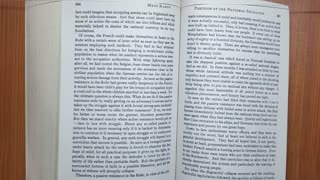 16:07
16:07
Analog Video Books - Read with Me
1 month agoMein Kampf (My Struggle) 080 Adolf Hitler 1925 Translated by R. Manheim Audio/Video Book S080 -End
375 -
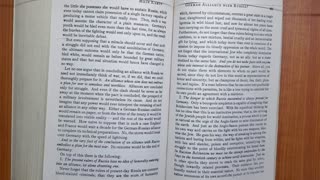 19:45
19:45
Analog Video Books - Read with Me
1 month agoMein Kampf (My Struggle) 077 Adolf Hitler 1925 Translated by R. Manheim Audio/Video Book S077
253 -
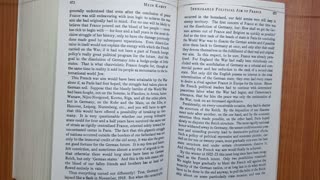 21:20
21:20
Analog Video Books - Read with Me
1 month agoMein Kampf (My Struggle) 078 Adolf Hitler 1925 Translated by R. Manheim Audio/Video Book S078
400 -
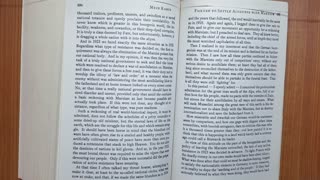 20:31
20:31
Analog Video Books - Read with Me
1 month agoMein Kampf (My Struggle) 079 Adolf Hitler 1925 Translated by R. Manheim Audio/Video Book S079
117 -
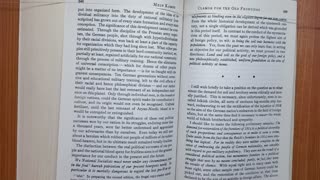 23:56
23:56
Analog Video Books - Read with Me
1 month agoMein Kampf (My Struggle) 075 Adolf Hitler 1925 Translated by R. Manheim Audio/Video Book S075
1.11K -
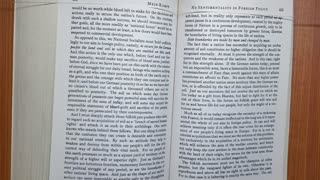 19:45
19:45
Analog Video Books - Read with Me
1 month agoMein Kampf (My Struggle) 076 Adolf Hitler 1925 Translated by R. Manheim Audio/Video Book S076
779 -
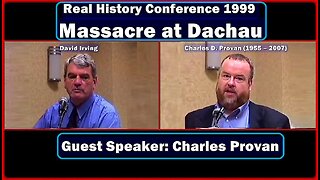 1:21:00
1:21:00
Page Chronicles
25 days agoMASSACRE AT DACHAU | REAL HISTORY CONFERENCE 1999 | GUEST SPEAKER: CHARLES D. PROVAN (1955 – 2007)
5861 -
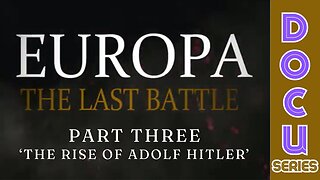 41:08
41:08
The Michelle Moore Show
29 days agoDocumentary: Europa 'The Last Battle' Part Three (The Rise of Adolf Hitler)
22.5K29 -
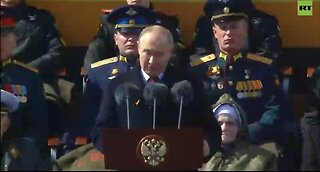 9:38
9:38
deNAZIfication - Special Military QperationZ WORLDWIDE
25 days ago️The Victory Day Moscow - President Putin's Speech
1.88K2 -
 2:06:26
2:06:26
The Michelle Moore Show
23 days agoDocumentary: Europa 'The Last Battle' Part Eight (The Holocaust)
19.3K14